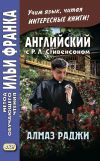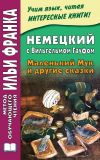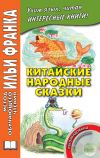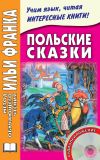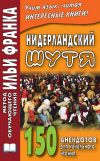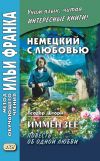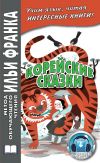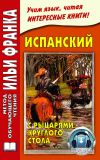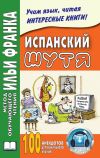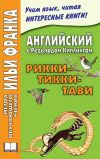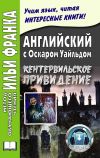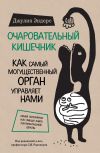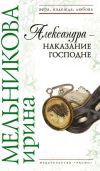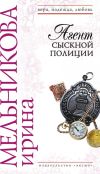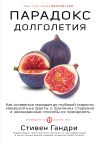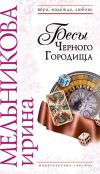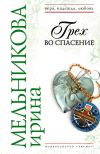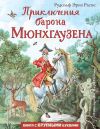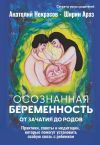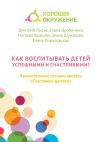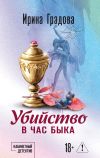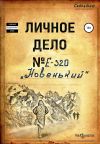
Автор книги: Энтони Хоуп
Жанр: Иностранные языки, Наука и Образование
Возрастные ограничения: 16+
сообщить о неприемлемом содержимом

I had one more battle left to fight – a battle that would, I knew, be severe, and was bound to end in my complete defeat. Was I not back from the Tyrol, without having made any study of its inhabitants, institutions, scenery, fauna, flora, or other features? Had I not simply wasted my time in my usual frivolous, good-for-nothing way? That was the aspect of the matter which, I was obliged to admit, would present itself to my sister-in-law; and against a verdict based on such evidence, I had really no defence to offer. It may be supposed, then, that I presented myself in Park Lane in a shamefaced, sheepish fashion. On the whole, my reception was not so alarming as I had feared. It turned out that I had done, not what Rose wished, but – the next best thing – what she prophesied. She had declared that I should make no notes, record no observations, gather no materials. My brother, on the other hand, had been weak enough to maintain that a serious resolve had at length animated me.
When I returned empty-handed, Rose was so occupied in triumphing over Burlesdon (когда я вернулся с пустыми руками, Роуз была так охвачена радостью победы над Берлисдонами) that she let me down quite easily, devoting the greater part of her reproaches (что позволила мне довольно легко отделаться, посвятив большую часть своих упреков; to let down – опускать; унизить, уронить /репутацию/; to let smb. down easily/gently/lightly – пощадить чье-л. самолюбие, отнестись мягко) to my failure to advertise my friends of my whereabouts (тому, что я не поставил друзей в известность о своем местонахождении; failure – неудача; невыполнение, неосуществление; to advertise – помещать объявление; извещать, уведомлять).
“We’ve wasted a lot of time trying to find you (мы потратили уйму времени, пытаясь разыскать тебя),” she said.
“I know you have (да, я знаю),” said I. “Half our ambassadors have led weary lives on my account (половина наших послов из-за меня не знала покоя: «вела утомительную жизнь»; on account of – из-за). George Featherly told me so (так мне сказал Джордж Фэзерли). But why should you have been anxious (но зачем вам было беспокоиться)? I can take care of myself (я сам могу о себе позаботиться).”
“Oh, it wasn’t that,” she cried scornfully (о, это не потому, – воскликнула она насмешливо), “but I wanted to tell you about Sir Jacob Borrodaile (я хотела сообщить тебе о сэре Джейкобе Борродэйле). You know, he’s got an Embassy – at least, he will have in a month (ты же знаешь, его назначили послом – по крайней мере, назначат через месяц) – and he wrote to say he hoped you would go with him (и он написал, чтобы сказать, что надеется, ты поедешь с ним).”
“Where’s he going to (куда он едет)?”
“He’s going to succeed Lord Topham at Strelsau (он едет сменить лорда Топхэма в Стрелсо; to succeed – достигнуть цели, иметь успех; прийти на смену),” said she. “You couldn’t have a nicer place, short of Paris (ты не мог бы получить лучшего места = лучшего места и желать не приходится, если не считать Парижа; short of – за исключением).”

When I returned empty-handed, Rose was so occupied in triumphing over Burlesdon that she let me down quite easily, devoting the greater part of her reproaches to my failure to advertise my friends of my whereabouts.
“We’ve wasted a lot of time trying to find you,” she said.
“I know you have,” said I. “Half our ambassadors have led weary lives on my account. George Featherly told me so. But why should you have been anxious? I can take care of myself.”
“Oh, it wasn’t that,” she cried scornfully, “but I wanted to tell you about Sir Jacob Borrodaile. You know, he’s got an Embassy – at least, he will have in a month – and he wrote to say he hoped you would go with him.”
“Where’s he going to?”
“He’s going to succeed Lord Topham at Strelsau,” said she. “You couldn’t have a nicer place, short of Paris.”
“Strelsau! H’m!” said I, glancing at my brother (Стрелсо, хм! – сказал я, бросив взгляд на брата).
“Oh, that doesn’t matter!” exclaimed Rose impatiently (о, тот /случай/ не имеет значения! – воскликнула Роуз нетерпеливо). “Now, you will go, won’t you (ну, ты поедешь, не так ли)?”
“I don’t know that I care about it (даже не знаю, интересно ли мне это; to care – заботиться; питать интерес)!”
“Oh, you’re too exasperating (о, ты совершенно невыносим; too – слишком, чересчур)!”
“And I don’t think I can go to Strelsau (и я не думаю, что могу поехать в Стрелсо). My dear Rose, would it be – suitable (дорогая Роуз, будет ли это… удобным: «подходящим»)?”
“Oh, nobody remembers that horrid old story now (о, теперь уже никто не помнит ту отвратительную древнюю историю; horrid – страшный, ужасный; отвратительный, противный /разг./).”
Upon this, I took out of my pocket a portrait of the King of Ruritania (тут я вынул из кармана портрет короля Руритании). It had been taken a month or two before he ascended the throne (его сделали месяца за два до того, как он взошел на трон). She could not miss my point when I said, putting it into her hands (она не могла не понять, к чему я веду, когда я сказал, передавая ей снимок; to miss – промахнуться; не понять, не уловить; point – точка; суть, смысл):
“In case you’ve not seen, or not noticed, a picture of Rudolf V, there he is (на случай, если ты не видела или не обращала внимания на фотографии Рудольфа Пятого, вот он). Don’t you think they might recall the story, if I appeared at the Court of Ruritania (тебе не кажется, что могут вспомнить ту историю, если я появлюсь при дворе Руритании)?”
My sister-in-law looked at the portrait, and then at me (моя невестка посмотрела на портрет, потом на меня).
“Good gracious!” she said, and flung the photograph down on the table (Боже правый! – сказала она и бросила фотографию на стол).

“Strelsau! H’m!” said I, glancing at my brother.
“Oh, that doesn’t matter!” exclaimed Rose impatiently. “Now, you will go, won’t you?”
“I don’t know that I care about it!”
“Oh, you’re too exasperating!”
“And I don’t think I can go to Strelsau. My dear Rose, would it be – suitable?”
“Oh, nobody remembers that horrid old story now.”
Upon this, I took out of my pocket a portrait of the King of Ruritania. It had been taken a month or two before he ascended the throne. She could not miss my point when I said, putting it into her hands:
“In case you’ve not seen, or not noticed, a picture of Rudolf V, there he is. Don’t you think they might recall the story, if I appeared at the Court of Ruritania?”
My sister-in-law looked at the portrait, and then at me.
“Good gracious!” she said, and flung the photograph down on the table.
“What do you say, Bob?” I asked (а ты что скажешь, Боб, – спросил я).
Burlesdon got up, went to a corner of the room (Берлисдон встал, прошел в угол комнаты), and searched in a heap of newspapers (и порылся в кипе газет). Presently he came back with a copy of the Illustrated London News (через минуту он вернулся с экземпляром «Иллюстрейтед Лондон Ньюс»; Illustrated London News – иллюстрированный журнал, печатающий материалы о текущих внутренних и международных событиях; помещает много фотографий). Opening the paper, he displayed a double-page engraving (открыв журнал, он показал гравюру на развороте; double – двойной; page – страница, полоса) of the Coronation of Rudolf V at Strelsau (с коронации Рудольфа Пятого в Стрелсо). The photograph and the picture he laid side by side (фотографию и это изображение он положил рядом). I sat at the table fronting them (я сел за стол лицом к ним; to front – выходить на, быть обращенным к); and, as I looked, I grew absorbed (и, пока я смотрел, то /все больше/ погружался в воспоминания: «становился поглощенным»; to absorb – всасывать, впитывать; захватывать, поглощать /внимание/). My eye travelled from my own portrait to Sapt, to Strakencz (мой взгляд переходил с моего собственного портрета на Сэпта, на Штракенца), to the rich robes of the Cardinal, to Black Michael’s face (на богатые одежды кардинала, на лицо Черного Михаэля), to the stately figure of the princess by his side (на величавую фигуру принцессы рядом с ним). Long I looked and eagerly (я смотрел долго и пристально). I was roused by my brother’s hand on my shoulder (я очнулся, /когда/ рука моего брата /легла/ мне на плечо; to rouse – будить; пробуждаться). He was gazing down at me with a puzzled expression (он пристально смотрел на меня с озадаченным выражением /лица/).
“It’s a remarkable likeness, you see (удивительная схожесть, ты же видишь),” said I. “I really think I had better not go to Ruritania (я и в самом деле считаю, что мне лучше не ехать в Руританию).”
Rose, though half convinced, would not abandon her position (Роуз, хотя уже почти убежденная, не желала сдавать своих позиций).

“What do you say, Bob?” I asked.
Burlesdon got up, went to a corner of the room, and searched in a heap of newspapers. Presently he came back with a copy of the Illustrated London News. Opening the paper, he displayed a double-page engraving of the Coronation of Rudolf V at Strelsau. The photograph and the picture he laid side by side. I sat at the table fronting them; and, as I looked, I grew absorbed. My eye travelled from my own portrait to Sapt, to Strakencz, to the rich robes of the Cardinal, to Black Michael’s face, to the stately figure of the princess by his side. Long I looked and eagerly. I was roused by my brother’s hand on my shoulder. He was gazing down at me with a puzzled expression.
“It’s a remarkable likeness, you see,” said I. “I really think I had better not go to Ruritania.”
Rose, though half convinced, would not abandon her position.
“It’s just an excuse,” she said pettishly (это просто отговорка, – раздраженно сказала она; excuse – извинение; предлог, отговорка). “You don’t want to do anything (ты не хочешь ничего делать). Why, you might become an ambassador (но ты мог бы стать послом)!”
“I don’t think I want to be an ambassador (не думаю, что хочу стать послом),” said I.
“It’s more than you ever will be,” she retorted (это большее, чем ты когда-либо станешь, – ядовито отозвалась она; to retort – отвечать резко и остроумно).
That is very likely true, but it is not more than I have been (это весьма похоже на правду, но это не большее, чем я уже был).
The idea of being an ambassador could scarcely dazzle me (идея стать послом едва ли могла поразить меня). I had been a king (я был королем)!
So pretty Rose left us in dudgeon (вот так, в негодовании, милая Роуз оставила нас); and Burlesdon, lighting a cigarette, looked at me still with that curious gaze (а Берлисдон, закурив сигарету, посмотрел на меня пытливым взглядом).
“That picture in the paper (это фото в газете) – ” he said.
“Well, what of it (ну, что с ним)? It shows that the King of Ruritania and your humble servant are as like as two peas (оно доказывает, что король Руритании и ваш покорный слуга похожи, как две капли воды).”
My brother shook his head (брат покачал головой).
“I suppose so (полагаю, что так),” he said. “But I should know you from the man in the photograph (но я узнал бы тебя в человеке на фотографии).”
“And not from the picture in the paper (а не на картинке в журнале)?”

“It’s just an excuse,” she said pettishly. “You don’t want to do anything. Why, you might become an ambassador!”
“I don’t think I want to be an ambassador,” said I.
“It’s more than you ever will be,” she retorted.
That is very likely true, but it is not more than I have been.
The idea of being an ambassador could scarcely dazzle me. I had been a king!
So pretty Rose left us in dudgeon; and Burlesdon, lighting a cigarette, looked at me still with that curious gaze.
“That picture in the paper – “ he said.
“Well, what of it? It shows that the King of Ruritania and your humble servant are as like as two peas.”
My brother shook his head.
“I suppose so,” he said. “But I should know you from the man in the photograph.”
“And not from the picture in the paper?”
“I should know the photograph from the picture (я узнал бы фотографию по картинке): the picture’s very like the photograph, but (картинка очень похожа на фотографию, но) – ”
“Well (ну)?”
“It’s more like you!” said my brother (больше она похожа на тебя! – сказал мой брат).
My brother is a good man and true (мой брат – хороший парень и верный /друг/) – so that, for all that he is a married man and mighty fond of his wife (так что, несмотря на то, что он женатый человек и очень любит свою жену), he should know any secret of mine (я мог ему доверить: «ему стоило знать» любую мою тайну). But this secret was not mine, and I could not tell it to him (но эта тайна была не моей, и я не мог открыть ее ему).
“I don’t think it’s so much like me as the photograph (не думаю, что здесь со мной такая же схожесть, как на фото),” said I boldly (сказал я уверенно). “But, anyhow, Bob, I won’t go to Strelsau (но в любом случае, Боб, я не хочу ехать в Стрелсо).”
“No, don’t go to Strelsau, Rudolf (нет, не езди в Стрелсо, Рудольф),” said he.
And whether he suspects anything, or has a glimmer of the truth, I do not know (и, подозревает ли он что-то или догадывается об истине: «или имеет слабый проблеск истины», я не знаю; glimmer – мерцание; слабый проблеск). If he has, he keeps it to himself, and he and I never refer to it (если так, то он держит это при себе, и мы с ним никогда не упоминаем об этом; to refer – касаться, иметь отношение; упоминать, говорить /о чем-л./). And we let Sir Jacob Borrodaile find another attache (и мы позволили сэру Джейкобу Борродэйлу найти /себе/ другого атташе).
Since all these events whose history I have set down happened (после того, как произошли эти события, последовательность: «историю» которых я изложил; to set down – высаживать, ссаживать; записывать, письменно излагать) I have lived a very quiet life at a small house (я живу очень спокойной жизнью в маленьком домике) which I have taken in the country (который я приобрел за городом). The ordinary ambitions and aims of men in my position (обычные стремления и цели людей моего круга: «положения»; ambition – честолюбие; стремление, цель) seem to me dull and unattractive (кажутся мне скучными и неинтересными: «непривлекательными»).

“I should know the photograph from the picture: the picture’s very like the photograph, but – ”
“Well?”
“It’s more like you!” said my brother.
My brother is a good man and true – so that, for all that he is a married man and mighty fond of his wife, he should know any secret of mine. But this secret was not mine, and I could not tell it to him.
“I don’t think it’s so much like me as the photograph,” said I boldly. “But, anyhow, Bob, I won’t go to Strelsau.”
“No, don’t go to Strelsau, Rudolf,” said he.
And whether he suspects anything, or has a glimmer of the truth, I do not know. If he has, he keeps it to himself, and he and I never refer to it. And we let Sir Jacob Borrodaile find another attache.
Since all these events whose history I have set down happened I have lived a very quiet life at a small house which I have taken in the country. The ordinary ambitions and aims of men in my position seem to me dull and unattractive.
I have little fancy for the whirl of society (меня мало интересует круговорот общественной /жизни/; to have a fancy for smth. – любить что-л., увлекаться чем-л.), and none for the jostle of politics (и /я совершенно равнодушен/ к политической борьбе; jostle – толчок, столкновение; толкотня, давка). Lady Burlesdon utterly despairs of me (леди Берлисдон совершенно во мне разочаровалась; to despair – отчаиваться, терять надежду); my neighbours think me an indolent, dreamy, unsociable fellow (мои соседи считают меня ленивым, мечтательным, замкнутым человеком; unsociable – нелюдимый, необщительный; society – общество; общение). Yet I am a young man; and sometimes I have a fancy (однако я еще молод; и иногда я воображаю; fancy – фантазия, воображение) – the superstitious would call it a presentiment (суеверные люди назвали бы это предчувствием) – that my part in life is not yet altogether played (что моя роль в жизни еще не до конца: «не совсем» сыграна); that, somehow and some day, I shall mix again in great affairs (что каким-то образом однажды я снова вмешаюсь в великие события; to mix – смешивать; to mix in – вмешиваться, ввязываться; affair – дело; событие, история /разг./), I shall again spin policies in a busy brain (я снова буду плести хитроумные интриги; policy – политика; хитрость; busy brain – деятельный ум), match my wits against my enemies’ (состязаться умом со своими врагами; to match – подходить под пару, соответствовать; противостоять, состязаться), brace my muscles to fight a good fight and strike stout blows (напрягать свои мускулы, чтобы храбро сражаться и наносить сильные удары). Such is the tissue of my thoughts as, with gun or rod in hand (такие меня посещают мысли: «таково сплетение моих мыслей», когда с ружьем или удочкой в руке; tissue – ткань; паутина, сплетение; rod – ветка, прут; удочка, удилище), I wander through the woods or by the side of the stream (я брожу по лесу или по берегу реки; side – сторона; берег). Whether the fancy will be fulfilled, I cannot tell (осуществится ли эта фантазия, я не могу сказать; to fulfil – выполнять; осуществлять) – still less whether the scene that, led by memory, I lay for my new exploits will be the true one (не говоря о том, станет ли сцена, которую, руководствуясь памятью, я определил для своих будущих подвигов, реальной; to lay – класть, положить; помещать) – for I love to see myself once again in the crowded streets of Strelsau (потому что мне нравится снова видеть себя на переполненных улицах Стрелсо), or beneath the frowning keep of the Castle of Zenda (или под грозной башней замка Зенды; frowning – хмурый; грозный, угрожающий).

I have little fancy for the whirl of society, and none for the jostle of politics. Lady Burlesdon utterly despairs of me; my neighbours think me an indolent, dreamy, unsociable fellow. Yet I am a young man; and sometimes I have a fancy – the superstitious would call it a presentiment – that my part in life is not yet altogether played; that, somehow and some day, I shall mix again in great affairs, I shall again spin policies in a busy brain, match my wits against my enemies’, brace my muscles to fight a good fight and strike stout blows. Such is the tissue of my thoughts as, with gun or rod in hand, I wander through the woods or by the side of the stream. Whether the fancy will be fulfilled, I cannot tell – still less whether the scene that, led by memory, I lay for my new exploits will be the true one – for I love to see myself once again in the crowded streets of Strelsau, or beneath the frowning keep of the Castle of Zenda.
Thus led, my broodings leave the future, and turn back on the past (направленные таким образом, мои размышления = думы покидают будущее и поворачиваются назад к прошлому). Shapes rise before me in long array (видения встают передо мною длинной чередой; shape – форма; призрак; array – строй, построение) – the wild first revel with the King, the rush with my brave tea-table (та первая бурная пирушка с королем, прорыв с моим доблестным чайным столиком), the night in the moat, the pursuit in the forest (ночь во рву, погоня в лесу): my friends and my foes, the people who learnt to love and honour me (мои друзья и мои враги, люди, которые научились любить и почитать меня), the desperate men who tried to kill me (головорезы: «отчаянные люди», которые пытались убить меня). And, from amidst these last, comes one who alone of all of them yet moves on earth (и среди этих последних приходит тот, кто единственный из всех них все еще ходит по земле), though where I know not (хотя я не знаю где), yet plans (as I do not doubt) wickedness (/и/ все еще затевает (в чем я не сомневаюсь) какие-то злодейства), yet turns women’s hearts to softness and men’s to fear and hate (все еще заставляет женские сердца таять, а мужские – бояться и ненавидеть; to turn – поворачивать; превращать, изменять; softness – мягкость). Where is young Rupert of Hentzau (где /сейчас/ Руперт из Хенцо) – the boy who came so nigh to beating me (парень, который чуть не победил меня; nigh – близко, рядом; почти; to beat – бить, ударять; победить, превзойти)? When his name comes into my head (когда мне в голову приходит его имя), I feel my hand grip and the blood move quicker through my veins (я чувствую, как мои кулаки сжимаются, и кровь в моих венах бежит быстрее): and the hint of Fate – the presentiment – seems to grow stronger and more definite (и намек Судьбы – предчувствие – кажется, становится сильнее и определеннее), and to whisper insistently in my ear (и настойчиво шепчет мне в ухо) that I have yet a hand to play with young Rupert (что мне еще предстоит сыграть партию с юным Рупертом); therefore I exercise myself in arms, and seek to put off the day (поэтому я упражняюсь /во владении/ оружием и пытаюсь отсрочить тот день; to seek to do smth. – пытаться сделать что-л.) when the vigour of youth must leave me (когда энергия молодости должна оставить меня).

Thus led, my broodings leave the future, and turn back on the past. Shapes rise before me in long array – the wild first revel with the King, the rush with my brave tea-table, the night in the moat, the pursuit in the forest: my friends and my foes, the people who learnt to love and honour me, the desperate men who tried to kill me. And, from amidst these last, comes one who alone of all of them yet moves on earth, though where I know not, yet plans (as I do not doubt) wickedness, yet turns women’s hearts to softness and men’s to fear and hate. Where is young Rupert of Hentzau – the boy who came so nigh to beating me? When his name comes into my head, I feel my hand grip and the blood move quicker through my veins: and the hint of Fate – the presentiment – seems to grow stronger and more definite, and to whisper insistently in my ear that I have yet a hand to play with young Rupert; therefore I exercise myself in arms, and seek to put off the day when the vigour of youth must leave me.
One break comes every year in my quiet life (один раз в год в моей спокойной жизни происходит перемена; break – пролом, брешь; внезапная перемена). Then I go to Dresden, and there I am met (тогда я еду в Дрезден, и там меня встречает) by my dear friend and companion, Fritz von Tarlenheim (мой дорогой друг и товарищ Фриц фон Тарленхайм). Last time, his pretty wife Helga came (в последний раз приезжала его хорошенькая жена Хельга), and a lusty crowing baby with her (а с нею – здоровый агукающий малыш; to crow – кукарекать; издавать радостные звуки /о младенце/). And for a week Fritz and I are together (неделю мы с Фрицем проводим вместе), and I hear all of what falls out in Strelsau (и я слушаю о том, что происходит в Стрелсо; to fall out – выпадать; случаться); and in the evenings, as we walk and smoke together (а по вечерам, когда вместе гуляем и курим), we talk of Sapt, and of the King, and often of young Rupert (мы беседуем о Сэпте, о короле и частенько о молодом Руперте); and, as the hours grow small, at last we speak of Flavia (а когда уже далеко за полночь, мы говорим о Флавии; small hours – предрассветные часы). For every year Fritz carries with him to Dresden a little box (ибо каждый год Фриц привозит с собой в Дрезден небольшую коробочку); in it lies a red rose, and round the stalk of the rose (в ней лежит красная роза, а вокруг черенка розы) is a slip of paper with the words written: “Rudolf – Flavia – always (обернута узкая полоска бумаги с написанными на ней словами: «Рудольф – Флавия – навсегда»).” And the like I send back by him (и такую же /розу/ я посылаю с ним назад). That message, and the wearing of the rings (это послание и кольца, которыми мы обменялись: «и ношение колец»), are all that now bind me and the Queen of Ruritania (вот все, что связывает меня теперь с королевой Руритании). Far – nobler, as I hold her, for the act – she has followed (еще более благородная, как я считаю ее за этот поступок, она последовала туда: «так далеко»; to hold – держать; полагать, считать) where her duty to her country and her House led her (куда вел ее долг перед своей страной и своим родом; to lead), and is the wife of the King (и /теперь/, будучи женой короля), uniting his subjects to him by the love they bear to her (объединяет с ним его подданных любовью, которую они испытывают к ней; to bear – нести, носить; питать, таить), giving peace and quiet days to thousands by her self-sacrifice (даря мир и покой тысячам /людей/ за счет своего самопожертвования).

One break comes every year in my quiet life. Then I go to Dresden, and there I am met by my dear friend and companion, Fritz von Tarlenheim. Last time, his pretty wife Helga came, and a lusty crowing baby with her. And for a week Fritz and I are together, and I hear all of what falls out in Strelsau; and in the evenings, as we walk and smoke together, we talk of Sapt, and of the King, and often of young Rupert; and, as the hours grow small, at last we speak of Flavia. For every year Fritz carries with him to Dresden a little box; in it lies a red rose, and round the stalk of the rose is a slip of paper with the words written: “Rudolf – Flavia – always.” And the like I send back by him. That message, and the wearing of the rings, are all that now bind me and the Queen of Ruritania. Far – nobler, as I hold her, for the act – she has followed where her duty to her country and her House led her, and is the wife of the King, uniting his subjects to him by the love they bear to her, giving peace and quiet days to thousands by her self-sacrifice.
There are moments when I dare not think of it (бывают такие минуты, когда я не смею думать об этом), but there are others when I rise in spirit to where she ever dwells (но есть и другие, когда я мысленно поднимаюсь туда, где она навсегда осталась; spirit – дух; духовное начало; душа; in spirit – в душе, мысленно; to dwell – обитать, жить; пребывать); then I can thank God that I love the noblest lady in the world (тогда я могу благодарить Господа, что люблю самую благородную даму в мире), the most gracious and beautiful (самую добрую и прекрасную), and that there was nothing in my love (и что в моей любви не было ничего), that made her fall short in her high duty (что заставило бы ее изменить своему высшему долгу; to fall short – не достигать цели, не выполнять).
Shall I see her face again – the pale face and the glorious hair (увижу ли я ее лицо снова – бледное лицо и чудесные волосы)? Of that I know nothing (об этом я ничего не знаю); Fate has no hint, my heart no presentiment (у Судьбы нет намеков, у моего сердца – предчувствий). I do not know (я не знаю). In this world, perhaps – nay, it is likely – never (на этом свете, возможно – нет, вероятно – никогда). And can it be that somewhere, in a manner (а может, случится так, что где-то каким-то образом) whereof our flesh-bound minds have no apprehension (о котором наш ограниченный: «связанный» телом разум /даже/ не имеет представления; apprehension – опасение, дурное предчувствие; понимание, представление), she and I will be together again (мы с ней снова будем вместе), with nothing to come between us, nothing to forbid our love (и ничто не /будет/ стоять между нами, ничто не помешает нашей любви; to forbid – запрещать, не давать разрешения; препятствовать)? That I know not, nor wiser heads than mine (об этом не знаю ни я, ни более мудрые головы, чем моя). But if it be never (но если этого никогда не случится) – if I can never hold sweet converse again with her (если я никогда не смогу снова вести с ней приятные беседы; to hold – держать, удерживать; вести /разговор/; sweet – сладкий; приятный), or look upon her face, or know from her her love (или смотреть на ее лицо, или слышать: «узнавать» от нее о ее любви); why, then, this side the grave, I will live as becomes the man whom she loves (ну что ж, тогда на этом свете: «по эту сторону могилы» я буду жить так, как подобает человеку, которого она любит; to become – становиться, делаться; приличествовать, соответствовать); and, for the other side, I must pray a dreamless sleep (а на том – да ниспослан мне будет вечный сон без сновидений: «а для той стороны я должен молить о сне без сновидений»).

There are moments when I dare not think of it, but there are others when I rise in spirit to where she ever dwells; then I can thank God that I love the noblest lady in the world, the most gracious and beautiful, and that there was nothing in my love that made her fall short in her high duty.
Shall I see her face again – the pale face and the glorious hair? Of that I know nothing; Fate has no hint, my heart no presentiment. I do not know. In this world, perhaps – nay, it is likely – never. And can it be that somewhere, in a manner whereof our flesh-bound minds have no apprehension, she and I will be together again, with nothing to come between us, nothing to forbid our love? That I know not, nor wiser heads than mine. But if it be never – if I can never hold sweet converse again with her, or look upon her face, or know from her her love; why, then, this side the grave, I will live as becomes the man whom she loves; and, for the other side, I must pray a dreamless sleep.
